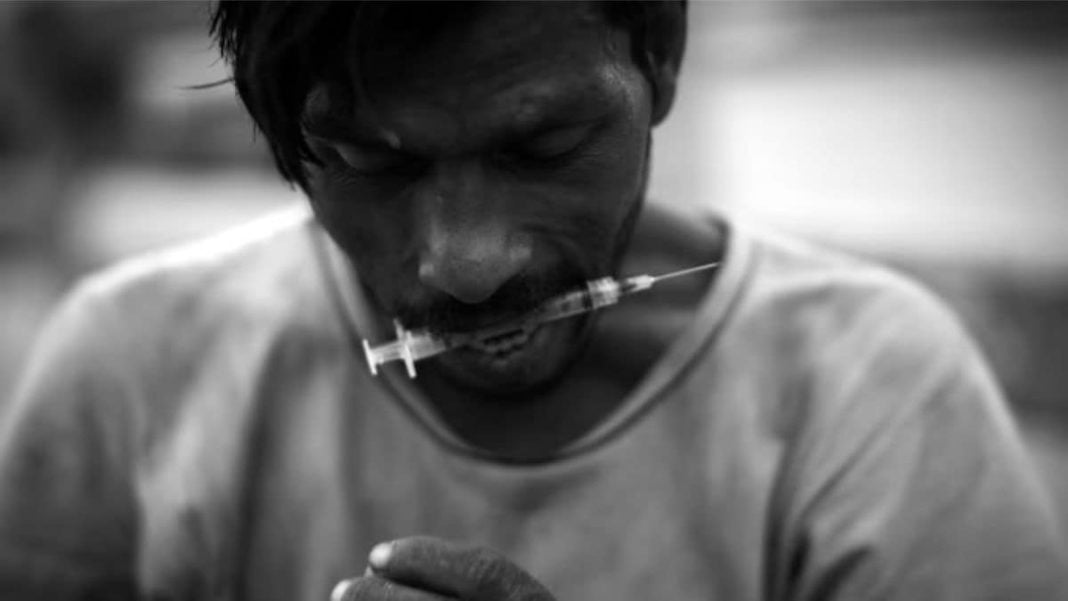The Indian Coast Guard has recently achieved a significant milestone in its efforts to combat drug trafficking. In a major operation earlier this week, the Coast Guard intercepted a Myanmarese fishing vessel near the Andaman and Nicobar Islands, which was transporting approximately 6,000 kilograms of methamphetamine, valued at an astonishing Rs 36,000 crore. This remarkable seizure has been described as the largest-ever maritime drug bust within India’s jurisdiction, highlighting the pressing issue of international drug trafficking that plagues the Indian Ocean region.
The Indian Ocean, a vital maritime corridor for global trade, has unfortunately also become a favored route for organized crime, particularly in drug smuggling. The United Nations Office on Drugs and Crime (UNODC) indicates that drug production linked to this region primarily emanates from the “Golden Crescent” and the “Golden Triangle,” notorious areas contributing to a multi-billion-dollar illicit drug trade. Smugglers utilize the Indian Ocean to connect narcotic producers to global markets, making it imperative for coastal nations to intensify their efforts in disrupting these illegal networks.
The Golden Crescent, encompassing Afghanistan, Iran, and Pakistan, stands out as a historical source of illicit opium. Opiates from this region are typically transported through three routes: the Balkan, northern, and southern pathways, with the latter traversing the Indian Ocean. After departing from the Makran Coast, drug shipments diverge into western and eastern routes. The western branch targets East Africa, Mozambique, and Yemen, while the eastern route is directed towards India, Sri Lanka, and Southeast Asia. Each of these pathways not only endangers countless lives but also finances transnational criminal organizations and terrorist groups, posing substantial security threats to the region.
In response to the escalating issue of maritime crime, India has taken decisive steps to enhance maritime domain awareness and coordination. Information fusion centers have been established in Singapore, Madagascar, and India, providing regional hubs that aggregate maritime data from diverse sources. These centers play a crucial role in identifying maritime crimes, especially those occurring beyond national jurisdictional boundaries.
The Indian Coast Guard, operating under the Narcotic Drugs and Psychotropic Substances Act of 1985, is at the forefront of enforcing laws within Indian territorial waters. The agency has developed memorandums of understanding with foreign coast guards and equivalent authorities, focusing on collaboration to combat transnational crimes and illegal maritime activities. Through intelligence-sharing initiatives, the Coast Guard collaborates with countries like Sri Lanka to enhance its effectiveness in tackling drug trafficking.
Complementing the Coast Guard’s efforts, the Indian Navy addresses criminal activities on the high seas, taking advantage of coordinated efforts to fill jurisdictional gaps exploited by traffickers. Earlier this year, the Navy, in conjunction with the Narcotics Control Bureau (NCB), seized 3,300 kg of drugs near Porbandar, Gujarat. International cooperation is also a critical aspect of the Navy’s strategy, as evidenced by its participation in the 46-nation Combined Maritime Forces (CMF), which bolsters India’s ability to tackle transnational threats.
Technological advancements further strengthen the Indian Navy’s capabilities in addressing the drug trade. Surveillance tools, including unmanned aerial vehicles (UAVs), Dornier aircraft, and long-range maritime patrol planes, facilitate monitoring of extensive ocean areas, enabling prompt identification of suspicious vessels. Additionally, the deployment of warships enhances response times, while regional information fusion centers contribute essential maritime intelligence.
The recent drug seizure by the Indian Coast Guard underscores both the progress made in the fight against maritime drug trafficking and the ongoing challenges that remain. As organized crime continues to adapt and exploit vulnerabilities, India’s maritime forces are poised to remain vigilant and proactive in safeguarding the region against this pressing threat.





